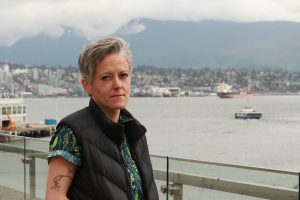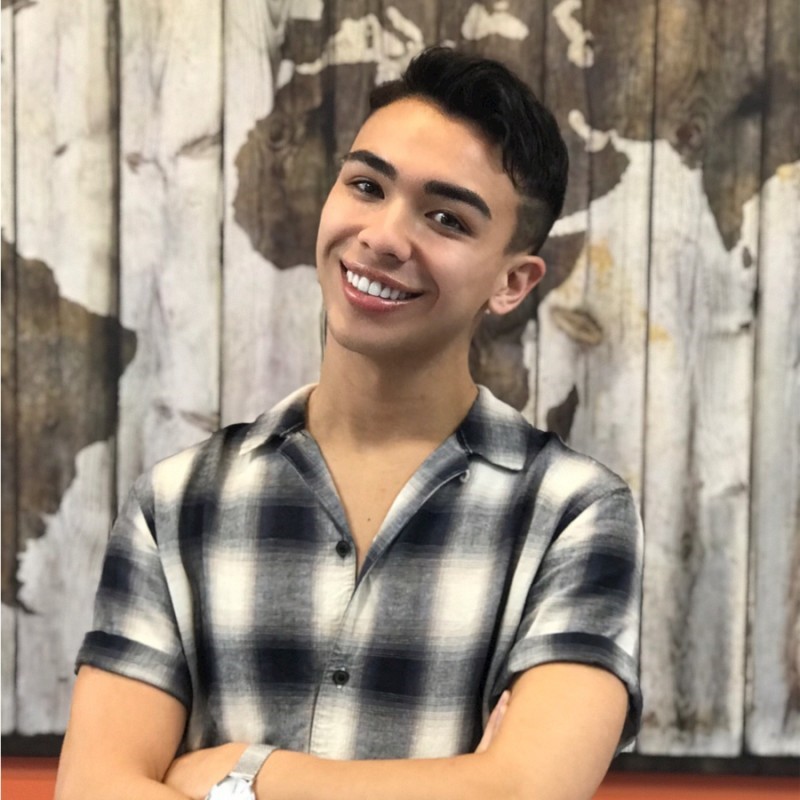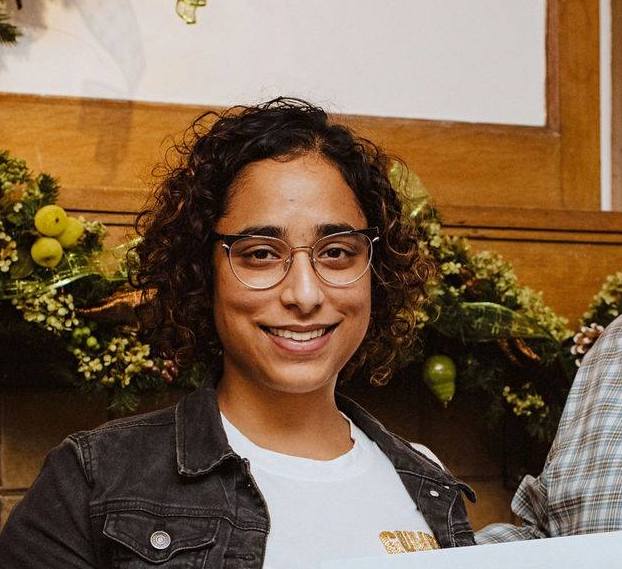DJ Larkin, Executive Director
 DJ Larkin is a respected lawyer and legal advocate who has worked on issues impacting people experiencing criminalization and systemic marginalization for over a decade. DJ has worked to centre the voices of people who use drugs through support for peer-led groups in Vancouver’s Downtown Eastside and in working with individuals and organizations in numerous other regions and communities.
DJ Larkin is a respected lawyer and legal advocate who has worked on issues impacting people experiencing criminalization and systemic marginalization for over a decade. DJ has worked to centre the voices of people who use drugs through support for peer-led groups in Vancouver’s Downtown Eastside and in working with individuals and organizations in numerous other regions and communities.
DJ has represented Indigenous governments—both elected and hereditary—in litigation regarding rights, land, and resource management. In 2017-2018, DJ also co-investigated and co-authored an in-depth report on systemic exclusion and marginalization of people living at the intersection of poverty, housing insecurity, and criminalized substance use aimed at creating systemic legislative and policy reform.
DJ currently lives on the unceded Indigenous lands of the xʷməθkʷəy̓əm (Musqueam), Skwxwú7mesh (Squamish) & səlil̓wətaʔɬ (Tsleil-Waututh) Peoples, and is committed to lifelong learning, self-improvement, and action to dismantle settler colonialism.
Beeta Senedjani, Community Policy and Network Coordinator
Beeta Senedjani (she/her) is the community policy and network coordinator at the Canadian Drug Policy Coalition, where she supports the organization and network partners to participate in policy development processes and build public support for rights-based drug policy. Beeta previously co-led the organization’s Getting to Tomorrow community engagement project, which visited 13 communities across Canada to engage in dialogue and develop policy recommendations to end the toxic drug crisis. Beeta’s professional background is grounded in project management and youth mental health support. Her previous work includes the development of a mental health promotion program at Planned Parenthood Toronto, and seven years working with high school-aged youth in Scarborough and Rexdale in Toronto, Ontario as a group facilitator for yoga, mindfulness and mental, emotional and physical health skills as part of her work with New Leaf Foundation. Beeta received her Master of Education from the Ontario Institute for Studies in Education, specializing in social justice. In her spare time, Beeta enjoys forest-bathing.
Nicole Luongo, Systems Change Analyst
 Nicole Luongo was born and raised on the unceded, traditional territories of the Sḵwx̱wú7mesh (Squamish), Stó:lō and Səl̓ílwətaʔ/Selilwitulh (Tsleil-Waututh) and xʷməθkʷəy̓əm (Musqueam) Nations (Vancouver, B. C.). She is the Canadian Drug Policy Coalition’s BC systems change coordinator, where she oversees a project that advances education and advocacy around legal regulation. She is passionate about moving the conversation on drug policy beyond decriminalization and is guided by experiential knowledge of illicit drug use and homelessness.
Nicole Luongo was born and raised on the unceded, traditional territories of the Sḵwx̱wú7mesh (Squamish), Stó:lō and Səl̓ílwətaʔ/Selilwitulh (Tsleil-Waututh) and xʷməθkʷəy̓əm (Musqueam) Nations (Vancouver, B. C.). She is the Canadian Drug Policy Coalition’s BC systems change coordinator, where she oversees a project that advances education and advocacy around legal regulation. She is passionate about moving the conversation on drug policy beyond decriminalization and is guided by experiential knowledge of illicit drug use and homelessness.
Nicole has spent a decade working in solidarity with those most impacted by the intersections of drug prohibition, housing-deprivation, and disability (in)justice, including as a member of the Vancouver Area Network of Drug Users (VANDU) and the Canadian Association of People who Use Drugs (CAPUD). Her academic background is in medical sociology, and she mostly conducts research in the fields of Mad and critical drug studies. Before joining the CDPC, Nicole taught college in Alberta and throughout the Lower Mainland.
Nick Boyce, Policy Director
Nick (he/him) is the Canadian Drug Policy Coalition's Policy Director. He was born in England, grew up in Toronto, Ontario, then completed a B.Sc. in Neuropsychology from Dalhousie University in Halifax, Nova Scotia. After witnessing an overdose death at a rave in 1999, he became a trained volunteer with TRIP! – providing safer drug use information and supplies to people in Toronto’s rave and nightclub communities.
He has worked as the Gay Men’s Harm Reduction Coordinator at the AIDS Committee of Toronto, as the Provincial Trainer with the Ontario HIV and Substance Use Training Program, and as Director of the Ontario Harm Reduction Network. He is a past Board Member with Addictions and Mental Health Ontario, was a member of the City of Toronto’s decriminalization working group and is the current Liaison with the Government of Canada for the Canadian Civil Society Working Group on International Drug Policy.
In 2017 he was a volunteer co-organizer with the Toronto Overdose Prevention Society, which set up an unsanctioned Overdose Prevention Site in Moss Park, Toronto, that successfully effected policy change at all levels of government.
He currently lives in Ottawa, Ontario on unceded Anishinabe Algonquin territory.
Ryan Do, Digital Communications Specialist
 Ryan Do is the Canadian Drug Policy Coalition’s Digital Communications Specialist. He has a passion for social media storytelling and its ability to connect people and communities. Born and raised in Ottawa, Ontario, he began his career working in the health sector, creating unique social media strategies and content for medical clinics. Making his move over to Vancouver, Ryan began working at a digital marketing agency where he focused on creating campaigns, strategies, and content, sourcing creators, and assisting in product shoots for brands in the health and wellness, food and beverage, and fashion sectors. Being able to see the immense impact that social media plays in people’s lives, Ryan was inspired to transition over to the social change sector.
Ryan Do is the Canadian Drug Policy Coalition’s Digital Communications Specialist. He has a passion for social media storytelling and its ability to connect people and communities. Born and raised in Ottawa, Ontario, he began his career working in the health sector, creating unique social media strategies and content for medical clinics. Making his move over to Vancouver, Ryan began working at a digital marketing agency where he focused on creating campaigns, strategies, and content, sourcing creators, and assisting in product shoots for brands in the health and wellness, food and beverage, and fashion sectors. Being able to see the immense impact that social media plays in people’s lives, Ryan was inspired to transition over to the social change sector.
Imane Tounsi, Operations Manager
 Imane Tounsi comes to the team with over 10 years of international relations and operations management experience related to various international projects in non-profit, corporate and diplomatic sectors. Her lived experience as an immigrant shapes the way she plans and implements programs and allows her to provide capacity-building activities and hold space for those who have been marginalized and silenced.
Imane Tounsi comes to the team with over 10 years of international relations and operations management experience related to various international projects in non-profit, corporate and diplomatic sectors. Her lived experience as an immigrant shapes the way she plans and implements programs and allows her to provide capacity-building activities and hold space for those who have been marginalized and silenced.
Known among her colleagues for her resilience and charisma, she has established herself as an effective problem-solver whose skills are conducive to successful project delivery. Imane is dedicated to developing impactful programs where social justice, equity, diversity and inclusion are the foundations of the systemic change she aspires to achieve.
Imane is a racialized settler living on the unceded territories of the xʷməθkʷəy̓əm (Musqueam), Skwxwú7mesh (Squamish) & səlil̓wətaʔɬ (Tsleil-Waututh) Peoples, and has embarked on an intentional journey of learning the truth about Indigenous Peoples' history and their struggle with colonialism. She considers herself an ally in this fight and is here to support in any possible way.
Shane Calder, Outreach and Mobilization Coordinator
 Shane is the Coordinator of CDPC’s national dialogue series Getting to Tomorrow. Born and raised on Lekwungen territory (Victoria, BC), he has been involved in community organizing since 1993. Focusing primarily on issues of poverty, homelessness, and workers' rights, Shane has acted in solidarity with many struggles through the organizing of community events and displays of resistance. Shane has a diverse range of organizing experience, from rallies of thousands to forums of a few, and everything in between. He is an experienced facilitator, educator, and public speaker who takes joy in being involved in grassroots organizing, shifting over the years to embrace a more heart-centred approach, and seeking to embody principles of anti-oppressive practice and collaboration into his organizing efforts.
Shane is the Coordinator of CDPC’s national dialogue series Getting to Tomorrow. Born and raised on Lekwungen territory (Victoria, BC), he has been involved in community organizing since 1993. Focusing primarily on issues of poverty, homelessness, and workers' rights, Shane has acted in solidarity with many struggles through the organizing of community events and displays of resistance. Shane has a diverse range of organizing experience, from rallies of thousands to forums of a few, and everything in between. He is an experienced facilitator, educator, and public speaker who takes joy in being involved in grassroots organizing, shifting over the years to embrace a more heart-centred approach, and seeking to embody principles of anti-oppressive practice and collaboration into his organizing efforts.
Being a leading figure of more than one mass movement, Shane moved into a position with AVI Health and Community Services (formerly AIDS Vancouver Island) in 2008, when it was an organization in crisis due to the loss of its needle distribution program and intense public opposition. During this time, Shane had the privilege of working alongside People with Lived Experience of drug criminalization and their allies. Organizing resistance to the stigma and structural violence experienced by those at the very heart of the war on drugs had a profound impact on Shane and the relationships gained, and lost, during this time, impact him still. During his time at AVI he had the privilege of co-creating the Street College Program, the Annual Convergence for People Who use Drugs, Harm Reduction Victoria, the Yes2scs Campaign (yes to supervise consumption services), and the South Island Community Overdose Response Network. Further, Shane has had the honour of working with SOLID Outreach Services and the BC/Yukon Association of Drug War Survivors, both deeply influential groups by and for people overcoming the war on drugs.
Naja Kassir, Community Engagement and Education Coordinator
Naja Kassir was born and raised in Tio:tia’ke/Mooniyang (colonially known as Montreal). At CDPC, she creates spaces for dialogue and critical political education led by people with lived experience of the drug poisoning crisis. Prior to joining CDPC, Naja spent a decade working and volunteering in soup kitchens, youth centres, community organizations and research projects, focusing her energy on youth experiencing the harms of precarity and colonization. As a multi-disciplinary artist, she saw how facilitating access to art allowed for people to connect through skill-sharing and leisure. She founded the party series Gay Arab Nights and the Full Circle art mentorship program, bringing people together to dance, talk, share and create in an accessible and unconstrained way. Naja found her way to drug policy work after witnessing how drug policies impacted and criminalized her communities wherever she went, and how harm reduction kept people alive. She believes drug decriminalization is necessary to ensure a path towards safety and to end the over-incarceration of the most marginalized members of our society.


